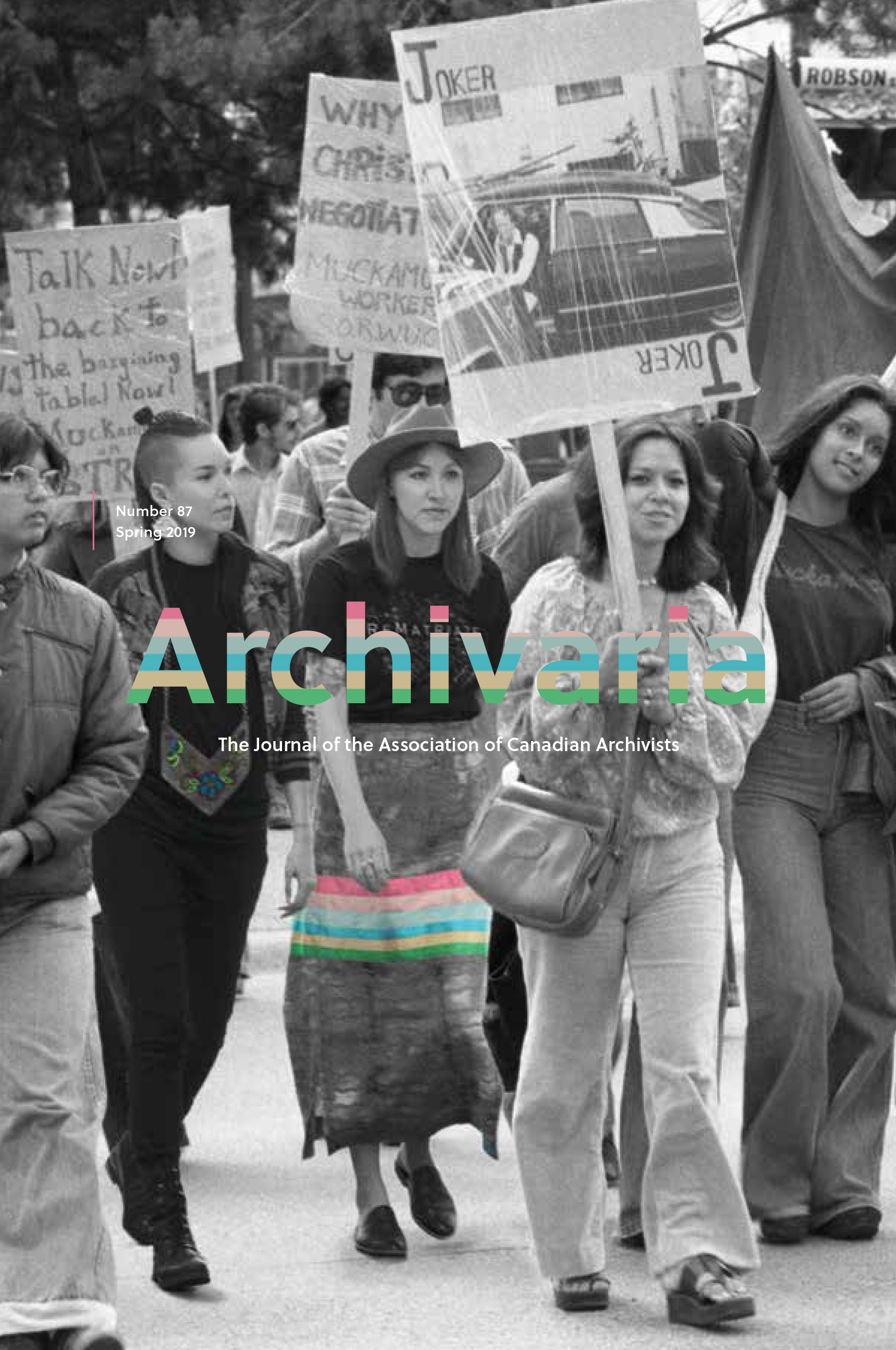Archive as Prefigurative Space: Our Lives and Black Feminism in Canada
Abstract
This article introduces readers to the publication archive of Our Lives: Canada’s First Black Women’s Newspaper, founded by the Black Women’s Collective in 1986 and housed within the digital collection of the Rise Up! Feminist Archive. By situating the publication Our Lives as a potential site for recuperating histories of Black feminist resistance, this article demonstrates the role that community or activist archives play in the preservation of collective history: combating institutional modes of erasure and challenging dominant historical narratives. It argues that there is a need for further examination of the pedagogical and ideological elements of activist archives and their contribution to social movements and archival practice. Rather than considering activist archives as relatives of traditional archival institutions, it suggests that these projects need to be examined as sites of active learning in the tradition of community-embedded experiments. Building on recent scholarship, it investigates the discursive continuity between archives and historical narratives, and it reconceptualizes the term archives to include alternative sites and materials for the reconstructing the stories of historically marginalized groups. Finally, the article argues that archival projects need to adapt to new forms of archival representation and contexts, allowing for shifts in traditional methods and definitions.
RÉSUMÉ
Cet article amène les lecteurs à la rencontre des archives liées à la publication Our Lives: Canada’s First Black Women’s Newspaper, fondé par le Black Women’s Collective en 1986 et qui est hébergé dans la collection numérique de Rise Up! Feminist Archive. En positionnant la publication Our Lives comme lieu potentiel de réappropriation des histoires de la résistance féministe noire, cet article démontre le rôle que les archives communautaires ou militantes jouent dans la préservation de l’histoire collective: elles luttent contre les modalités institutionnelles d’effacement et défient les discours historiques dominants. Il soutient qu’un examen plus poussé des éléments pédagogiques et idéologiques des archives militantes et leur contribution aux mouvements sociaux et aux pratiques en archivistique est nécessaire. Plutôt que de considérer les archives militantes comme apparentées aux institutions d’archives traditionnelles, il suggère que ces projets doivent être étudiés comme des lieux d’apprentissage actif dans la lignée des expériences ancrées dans la communauté. S’appuyant sur les études récentes, il scrute les continuités narratives entre les archives et les discours historiques et reconceptualise le terme « archives » afin d’y intégrer des lieux et des matériaux alternatifs pour rebâtir les histoires de groupes historiquement marginalisé. Enfin, l’article soutient que les projets archivistiques doivent s’adapter à de nouvelles formes de représentations et de contextes archivistiques, permettant ainsi de modifier les méthodes et les définitions traditionnelles.
Authors of manuscripts accepted for publication retain copyright in their work. They are required to sign the Agreement on Authors' Rights and Responsibilities that permits Archivaria to publish and disseminate the work in print and electronically. In the same agreement, authors are required to confirm that "the material submitted for publication in Archivaria, both in its paper and electronic versions, including reproductions of other works (e.g. photographs, maps, etc.) does not infringe upon any existing copyright." Authors of manuscripts accepted for publication retain copyright in their work and are able to publish their articles in institutional repositories or elsewhere as long as the piece is posted after its original appearance on archivaria.ca. Any reproduction within one year following the date of this agreement requires the permission of the General Editor.





